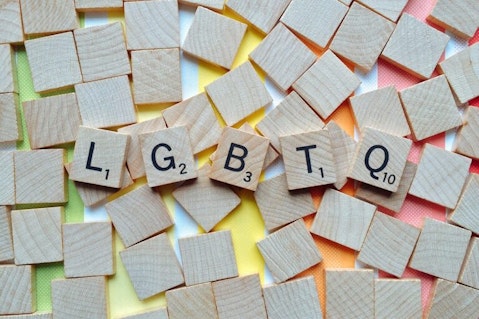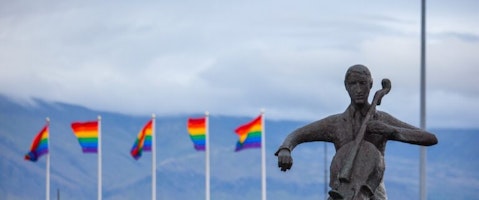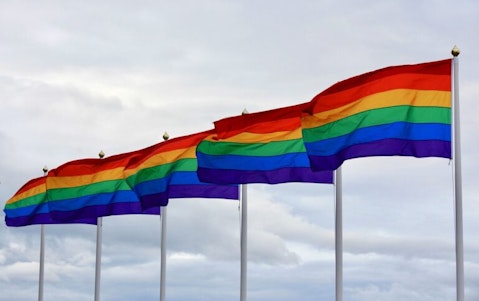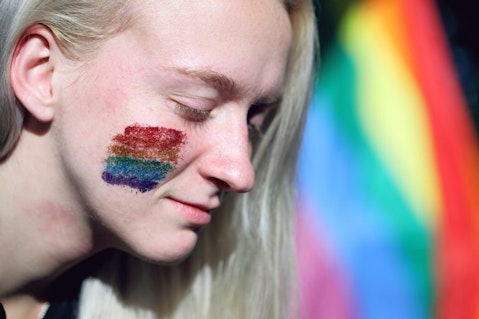Listing countries with the biggest LGBTQ+ population presents several challenges. The number of LGBTQ+ members vary from country to country, but the average percentage is around 10%. Calculating the actual number of LGBTQ+ people based on these percentages is the logical first step. However, obtaining accurate figures isn’t easy, as not all countries openly acknowledge their LGBTQ+ community. Some nations allow individuals to freely declare their sexual orientation, while others have a smaller number of LGBTQ+ individuals who feel comfortable coming out. Thus, our calculations must consider various factors.
Liberal countries tend to have largest LGBTQ+ population, whether we look at percentages or total numbers. For our research, we gathered global and country-specific LGBTQ+ percentage data. On average, one in ten people belongs to the LGBTQ+ community. However, this figure can be significantly higher (up to 15%) in some countries and lower (around 5%) in others. Yet, we suspect that the difference shouldn’t be as drastic across countries, as some may have a significant LGBTQ+ population that remains hidden due to societal pressures.

Pixabay/Public domain
Identifying the which of the following countries is least accepting of homosexuality also proves challenging due to multiple reasons. Some nations desire to adopt more liberal policies to grant LGBTQ+ individuals’ greater freedom. However, even the most liberal countries struggle to overcome stereotypes and limitations faced by the community. Research indicates financial hardships among LGBTQ+ individuals, making it difficult for them to secure and retain jobs, obtain bank loans, or access family or partnership loans.
When creating our list, we lacked concrete LGBTQ+ population figures. Therefore, we assumed that countries with greater respect for human rights and freedoms tend to have more open attitudes towards LGBTQ+ individuals. This, in turn, allows the community to express their sexuality openly. Consequently, countries with higher acceptance are likely to have a larger LGBTQ+ population, quite opposite of the straightest country in the world. Considering the statistics, the LGBTQ+ percentage by country in a population range from 7% to 15%, depending on the country. Relying solely on this data would lead to imprecise rankings.
Hence, we included other factors such as the percentage of people who know someone from the LGBTQ+ community (LGBTQ+ visibility) and the percentage of people who support same-sex marriages, assuming they correlate with acceptance. With this method, we identified 25 countries where the LGBTQ+ community enjoys freedom of expression. Finally, we determined the overall LGBTQ+ population for each country and analyzed which continent excels in LGBTQ+ rights. By doing so, we aimed to find the best countries for LGBTQ+ individuals to live in, considering their substantial LGBTQ+ population. We then calculated the total number of LGBTQ+ individuals in each country based on the survey percentages and listed them accordingly.
Let’s assess which continent emerges as the leader in terms of LGBTQ+ rights and identify the top countries offering an ideal living environment for LGBTQ+ individuals. These countries with the biggest LGBTQ+ population also show which countries are the best for living if you belong to this group.
25. New Zealand – 500,000
New Zealand is doing remarkably well in terms of LGBT rights, and it’s even ahead of its close neighbor, Australia. Along with Australia, it deserves to be a part of countries with the biggest LGBTQ+ population. As a gay, you can marriage with same sex partner, adopt child, or even serve in military. Even 10% of people claim that they belong to LGBTQ+ population.

Pixabay/Public domain
24. Singapore – 541,000
Singapore’s Prime Minister Lee Hsien Loong declared that his government intends to repeal Section 377A of the criminal code. This law, which dates to 1938 from British colonial times, criminalizes adult consensual sex between men. Prime Minister Lee Hsien Loong acknowledged that this law is discriminatory and goes against principles of nondiscrimination, privacy, and freedom from arbitrary arrest and detention. Maybe that affected the number of declared gay people, and it is 541,000.
23. Portugal – 700,000
The revolution in 1974 marked the end of the military dictatorship, leading to significant changes in Portuguese society. Since then, Portugal has become much more open-minded and progressive. In present times, the country is widely recognized as one of the world’s leading nations in protecting and advancing LGBT rights. So, Portugal surely earns to be part of the list of countries with the biggest LGBTQ+ population.
22. Belgium – 990,000
Belgium stands out as one of the most progressive countries in championing LGBTQIA+ rights and promoting equality. It made history as the second country worldwide, after the Netherlands, to legalize same-sex marriage back in 2003. A few years later, in 2006, same-sex adoption was also legalized. Moreover, lesbian couples have access to IVF treatment. In addition to these significant legal advancements, Belgium has enacted laws to safeguard against discrimination based on sexual orientation and gender identity. Notably, public opinion polls reveal that most Belgians are supportive of LGBTQIA+ rights, reflecting the country’s inclusive and accepting stance.
21. Sweden – 1,000,000
In recent years, Belgium has continued its commitment to promoting LGBTQIA+ rights by passing additional progressive laws. Notably, in 2009, the country implemented gender-neutral wedding laws, allowing couples to marry regardless of their gender identity. Furthermore, in 2003, adoption rights were extended to gay and lesbian couples, granting them the same rights as heterosexual couples.
20. Switzerland – 1,000,000
Historically, Switzerland has not been at the forefront of LGBT+ rights and policies compared to many other Western European countries. However, since the 1940s, there has been a gradual progress in liberalizing civil rights for the LGBT+ community, making Switzerland a safer place for its members.

Pixabay/Public domain
19. Peru – 1,300,000
Peru lacks legal recognition for same-sex couples, but trans individuals can rectify their name and gender marker on IDs through the judiciary, facing expensive and lengthy processes. A gender identity law has been sought since 2016, hindered by conservative majorities. Discrimination against LGBTIQ individuals continues, despite a law against it since 2017. Recent court ruling upheld a gay man’s rights to judicial protection and legal equality.
18. Netherlands – 2,000,000
On April 1st, 2001, the Netherlands became the pioneering country to recognize same-sex marriage. The historic day witnessed the marriage of four couples, inspiring many others to follow suit. In the Netherlands, discrimination is prohibited, and same-sex couples have been legally allowed to adopt children since 2001.
17. Poland – 2,000,000
Poland is not a shining example of a country with robust gay rights. Human Rights Watch highlights the government’s ongoing attacks on the rule of law, negatively impacting women and LGBT people. Since the Law and Justice (PiS) party assumed power in 2015, it has systematically undermined judicial independence, media freedom, and silenced activists and civil society groups who protest against its policies, including through the courts. Stronger action from the European Union is necessary to address these issues.
16. Argentina – 3,600,000
Argentina is making strides in safeguarding LGBT rights and women’s access to abortion, while also holding officials accountable for abuses during the past dictatorship. However, challenges persist, such as poor prison conditions and widespread violence against women, which demand continued attention and action.
15. Chile – 1,900,000
Chile is making significant progress with the implementation of its Equal Marriage Law, marking a notable victory for the LGBTQI+ community and civil society. As political changes present opportunities for further advancement, LGBTQI+ activists continue to work diligently to ensure equality becomes a tangible reality in both law and practice. Their efforts now focus on securing protections for the community in Chile’s new constitution, aiming to solidify the rights of LGBTQI+ individuals for the future.
14. Australia – 2,700,000
The Sex Discrimination Act of 1984 in Australia prohibits discrimination based on sexual orientation, gender identity, and intersex status. However, religious exemptions exist. Despite the legal protection, LGBTI individuals still face discrimination, harassment, and hostility in various aspects of daily life, including public settings, workplaces, educational institutions, accessing healthcare, and obtaining proper recognition of their sex on official documents.
13. South Africa – 4,000,000
South Africa stands as the sole sub-Saharan African country allowing same-sex relationships. Nevertheless, LGBTIQ individuals encounter several hurdles to achieve complete equality. The country took significant steps towards progress, banning discrimination based on sexual orientation constitutionally in 1996 and legalizing same-sex adoption in 2002. Marriage equality was established in 2005, and transgender South Africans gained legal gender recognition from 2003. Numerous activist groups work to support the LGBTIQ community, and vibrant Pride events are held annually in various cities throughout South Africa.
12. Canada – 4,000,000
Before 1969, same-sex sexual activities between consenting adults in Canada were considered criminal offenses, subject to imprisonment. However, a significant breakthrough occurred that year when the Canadian government passed an omnibus bill decriminalizing private sexual acts between two people over the age of 21. This milestone marked a significant step towards treating gay men, lesbians, and bisexuals equally under the law.

Pixabay/Public domain
11. Italy – 5,400,000
Italy, though accepting, faces challenges in fully recognizing LGBT rights in the legal framework. While same-sex relationships are legal and widely accepted, the country has yet to legalize same-sex marriage. Civil unions were introduced in 2016, but formal laws protecting sexual orientation and gender identity in various contexts are still lacking. Anti-discrimination laws exist in employment, but further progress is needed to safeguard LGBT residents’ rights comprehensively.
10. Thailand – 6,000,000
In comparison to North America and Western Europe, Thailand may not be as LGBTQ+-friendly, but among Asian countries, it stands out as one of the most LGBTQ+-friendly nations. Thailand is currently reviewing the possibility of passing civil partnership legislation, making strides in recognizing same-sex relationships. Additionally, since 2015, anti-discrimination laws have been in effect, providing significant protections for the transgender community, making it one of the best in Asia in this regard.
9. Colombia – 6,000,000
Colombia is recognized for having some of the most progressive LGBTQ+ rights and protections in Latin America. Notably, same-sex marriage was legalized in April 2016, with the first wedding taking place in Cali on 24 May 2016. In 2011, Congress passed a law prohibiting discrimination based on sexual orientation, and in 2012, adoption for same-sex couples was legalized. Moreover, Colombia has allowed individuals to change their gender since 1993. These advancements earned Colombia the title of best LGBTQ+ emerging destination at FITUR 2017 in Madrid and the recognition as the Leading LGBTQ+ Destination in South America in 2018 by the World Travel Awards.
8. Japan – 6,150,000
Japan stands out as one of the most progressive countries in terms of LGBTQ+ laws. It legalized same-sex sexual activity as early as 1880, setting it apart from many other countries on the continent where being gay remains illegal and highly stigmatized. Furthermore, Japan allows transgender individuals to change their legal gender after undergoing sex reassignment surgery, and certain cities have implemented laws banning discrimination based on sexual orientation and gender identity. These advancements showcase Japan’s commitment to fostering a more inclusive and accepting society for the LGBTQ+ community.
7. France – 6,500,000
France has earned a reputation as one of the world’s most LGBTQ+ friendly countries, regularly ranking high in LGBTQ+ reports like the Spartacus gay travel index and the ILGA Rainbow Europe study. The nation has a rich history of progress, legalizing same-sex marriage in 2013 and decriminalizing homosexuality as early as 1791. The French culture embraces a laissez-faire attitude toward sexuality, respecting individuals’ privacy. LGBTQ+ travelers can generally expect a welcoming and accepting environment in France, making it a comfortable destination for their journeys.

Pixabay/Public domain
6. Spain – 6,700,000
Spain is renowned for being one of the most culturally liberal and welcoming destinations for LGBTQ+ travelers. Most people in large cities and throughout the country are open-minded and accepting. While you may encounter some conservative attitudes in small villages or among older generations, they are not the norm. Impressively, Spain was an early adopter of same-sex marriage, legalizing it in 2005. Moreover, the country hosts one of the world’s largest Pride celebrations, attracting a massive 1.5 million attendees annually.
5. Germany – 9,000,000
Germany indeed has a vibrant history of LGBTQ+ rights and culture, from the progressive days of the Weimar Republic to the present. Throughout this journey, the country has consistently stood at the forefront of protecting and promoting LGBTQ+ rights. As the global landscape for LGBTQ+ rights evolves, Germany maintains its position as a leader in the fight for equality. The country’s LGBTQ+ community has played a pivotal role in shaping its rights and culture. From historical milestones to contemporary advocacy efforts, Germany continues to champion LGBTQ+ rights, making it a significant player in the global LGBTQ+ movement.

Pixabay/Public domain
4. Great Britain (United Kingdom) – 8,000,000
ILGA-Europe releases the Rainbow Map and Index annually, ranking 49 European nations based on their LGBTQ+ rights “legal and policy situation” since 2009. The 2023 Rainbow Map reveals that the United Kingdom has dropped from 14th in 2022 to 17th this year. Previously, until 2015, the UK consistently held the top spot as the most LGBTQ+-friendly place in Europe, surpassing other nations in terms of rights, protections, and freedoms offered to queer individuals. However, the recent decline in its ranking indicates changes in the landscape of LGBTQ+ rights in the country.